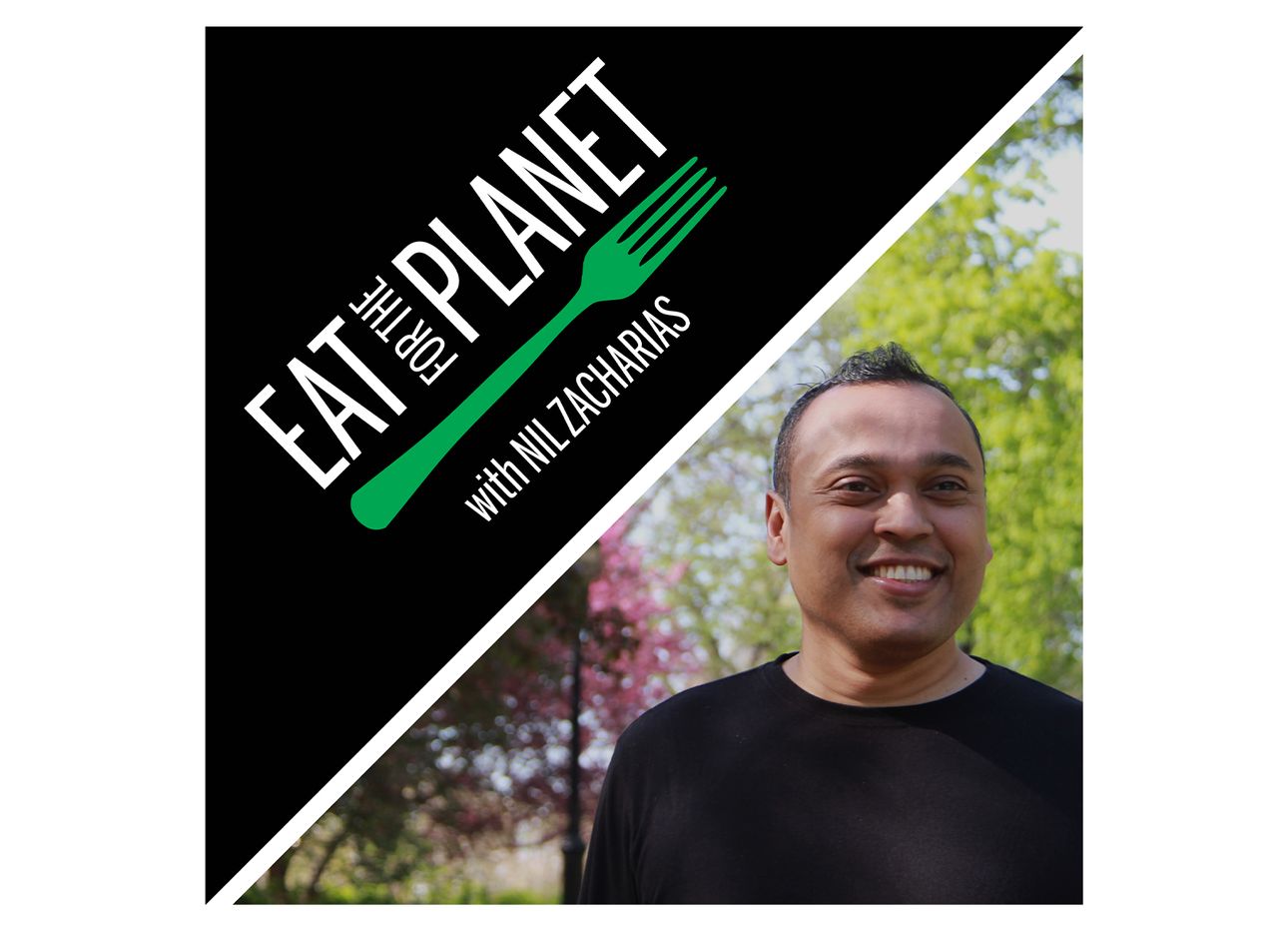
A Podcast Covering the Vanguards of the Sustainable Food Movement
Food has become increasingly difficult to understand in isolation from the political forces, economic logic, and environmental footprint that accompany its journey into our fridges, pantries, and stomachs. While the nature and the consequences of our diets are irrevocably bound up in the practices of the major players that supply our grocery stores, there’s a growing hunger to learn alternatives to the ecologically damaging practices of the food industrial complex.
Nil Zacharias has spent his time as an author, podcaster, and entrepreneur addressing exactly this. Previously a lawyer and digital marketer in Bombay, after adopting a plant-based diet in his thirties, he went on to found a number of food industry startups—most notably Plantega (where he’s currently CEO), a startup working to increase accessibility to plant-based foods, supplying products to a number of delis across New York. Beyond these entrepreneurial ambitions, Zacharias has also tried to contribute to the world of food and sustainability through his podcast, Eat for the Planet.
Zacharias has hosted the podcast since its inception in 2017, carrying out its self-proclaimed mission of covering the people, ideas, and technologies challenging the status quo of the food industry. The structure of each episode is to-the-point. With a few exceptions, each consists of one interview from start to finish, ranging between 30 minutes to an hour. How conversational the episode is depends on the guest, but Zacharias tends toward a more reserved style of interview, leaving his guests plenty of space to expound on their perspective on and hopes for food’s future.
The guests on the show run a wide gamut. One episode may have an activist for sustainable agriculture sharing what they’ve learned along their path, while another might see an economist discussing how food and farming can prepare us for the future by looking to the past. Another may simply give someone a chance to talk about how they created the best plant-based cheese they could imagine. The episodes do tend to have an entrepreneurial tone to them, given that the brunt of interviewees are innovators of plant-based meats or other vegetarian or vegan products. This aspect may be off-putting to those looking purely for discussion on sustainability in the food industry, and not so much the nitty-gritty of scaling up operations and securing investors. The practical, however, is a necessary hurdle to arriving at any ideal, and the conversations that begin with business-minded concerns tend to find their way to bigger-picture questions before the interview concludes. Altogether, the podcast offers a helpful repository of perspectives on where the food industry could be heading, and where it, perhaps, should.